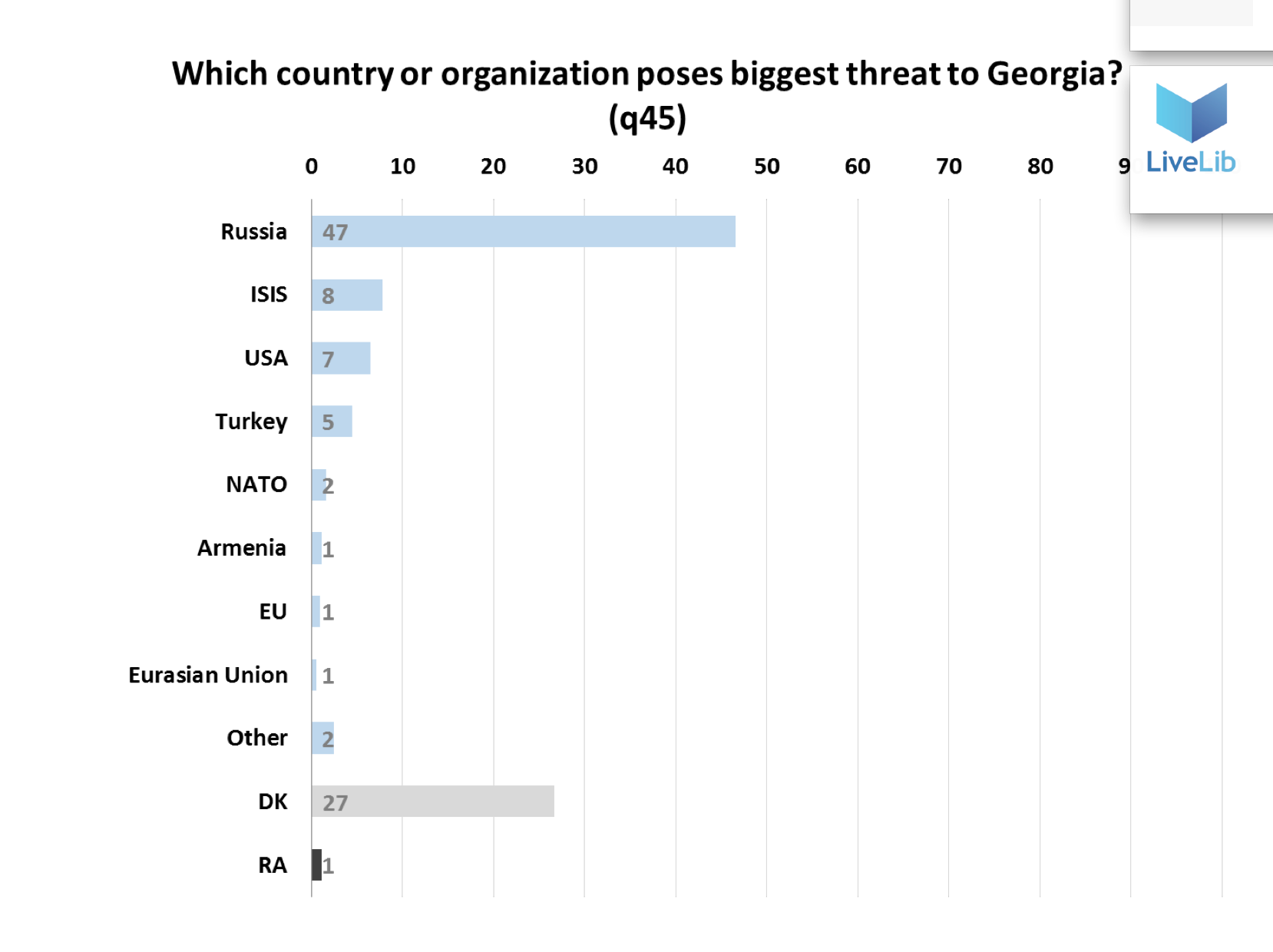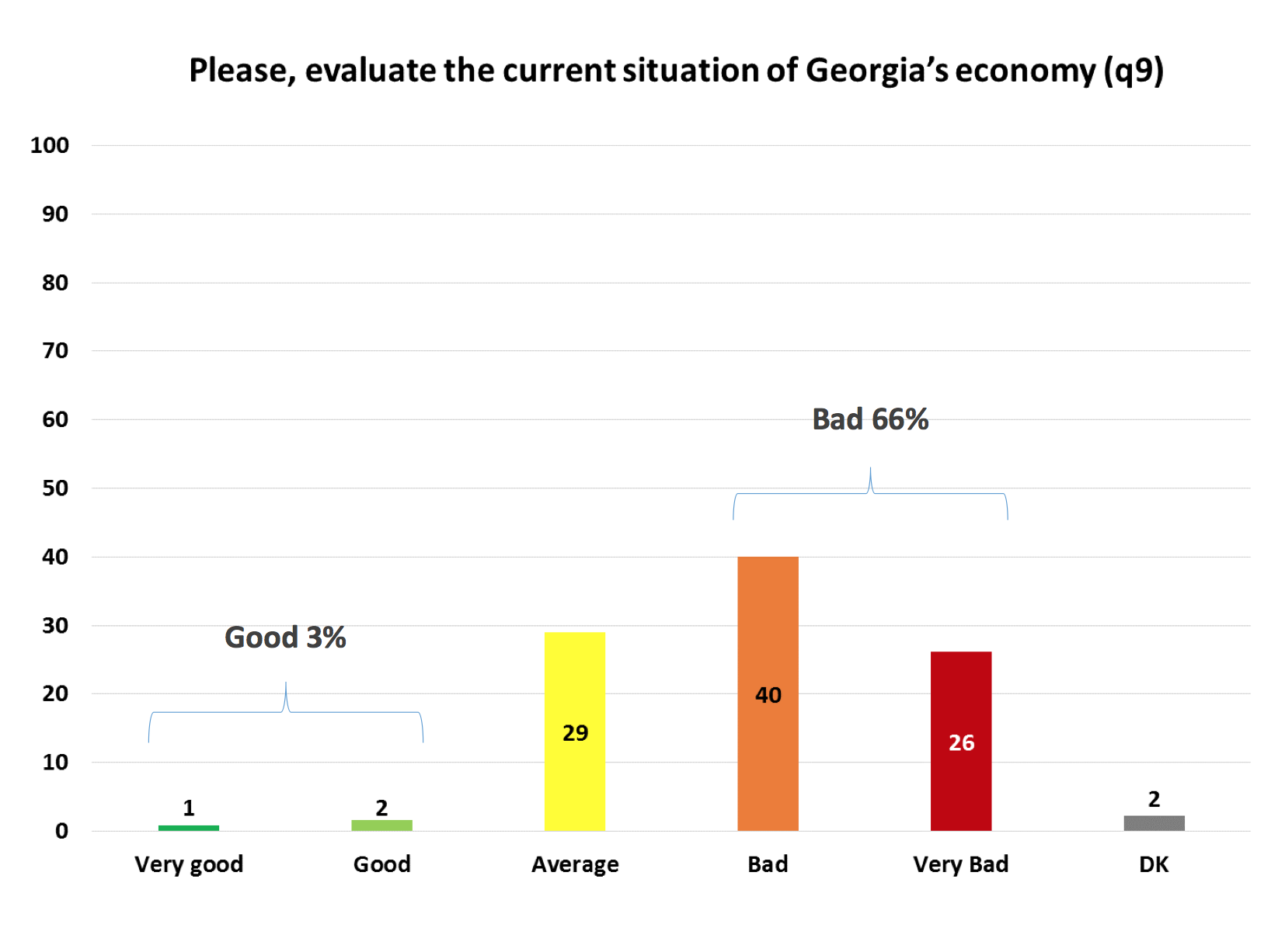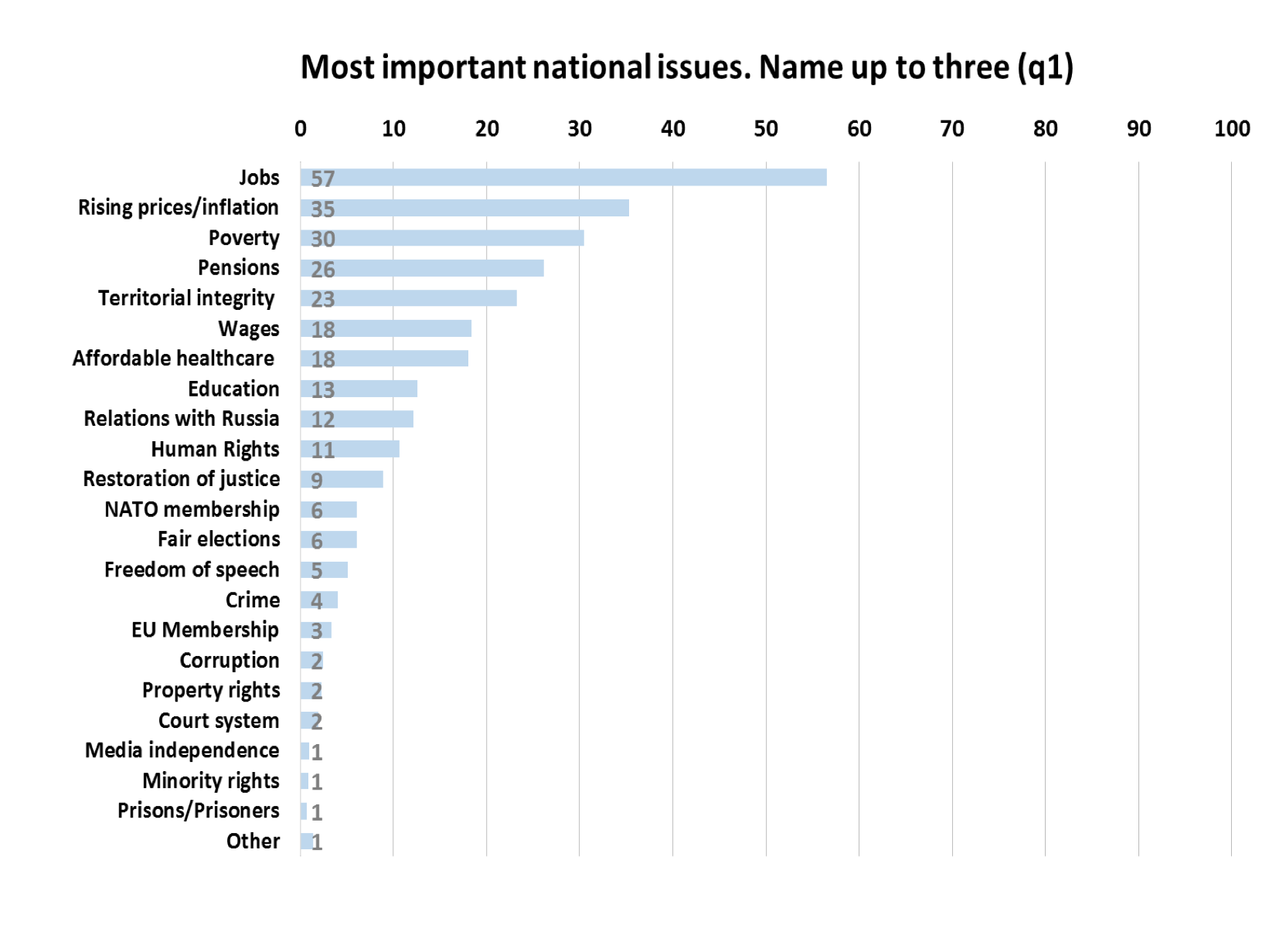Russia - the main danger
On April 11, the National Democratic Institute (NDI) published the findings of a public survey conducted in Georgia. What are the key trends highlighted in the survey?
Foreign Policy
The number of supporters for Georgia joining the EU has increased, whereas the number of those supporting membership in the Eurasian Union has considerably dropped, as shown in the National Democratic Institute (NDI)’s commissioned public opinion survey published on April 11.
In total, 3,900 respondents were interviewed throughout Georgia as part of the survey, conducted by the Caucasus Resource Research Center (CRRC) between February 23 and March 14.
61% of respondents in Tbilisi support Georgia’s integration into the EU, 68% membership in NATO, while only 20% support joining the Eurasian Union. According to the survey conducted in November last year, support for the EU was 58% and 24% for the Eurasian Union.
When asked which country or organization represents a major threat for Georgia, 47% of respondents named Russia. The Islamic state was named the second biggest threat after Russia, at 8%, with the USA being the third, at 7%.
52% of the population believe Georgia’s foreign policy should be pro-Western, though good relations with Russia need to be maintained. 16% of the people surveyed believe that Georgia’s foreign policy should be pro-Russian, though good relations with the EU and NATO should be maintained. 14% say Georgia’s foreign policy should be explicitly pro-Western. Only 5% of respondents believe that foreign policy should be explicitly pro-Russian.

One expert’s opinion: Tornike Sharashenidze believes that there are certain objective reasons for an increase in the support for the EU and a drop in the support for the Eurasian Union.
As Sharashenidze told the ‘InterpressNews’ agency when commenting on the NDI survey findings, this means that the climax of Russian propaganda’s has already passed.
‘There are some objective reasons for this conclusion. Our exports to the EU are increasing. The myth about the Russian market is a thing the past. Russian propaganda seems to be gradually failing on deaf ears. Everyone can see that Russia is in no way beneficial to them. These are the objective reasons. In addition, NGO’s have mobilized their efforts against Russian propaganda. It seems that these efforts have yielded a positive result,’ said Sharashenidze.
Domestic issues / Economy
The survey findings seem to be rather critical of the incumbent government. 39% of those questioned say that the country is developing on the wrong course; 42% claim their living conditions have worsened since October 2012 (the date of the change of power in Georgia); 66% consider the economic situation in the country to be very bad.

Another expert’s opinion: ‘It’s natural that more people are dissatisfied because the conditions for middle class in Georgia has gotten worse, statistically, especially in light of the depreciation of Lari. Regrettably, we are a consumer nation and, therefore, depreciation directly affects the consumer market.
The government is to blame for not ensuring the country’s economic security. We are very dependant on foreign imports. No positive revenue is being created locally. This, in turn, exacerbates the second problem, i.e. the amount of unemployment. This is displayed in the above picture.
No matter how much the government is truly responsible for all this, the population is not at all interested in finding out. It unequivocally claims that responsibility for the financial hardships rest on the government’s shoulders,’ Gia Khukhashvili told InterpressNews.
National issues and territorial integrity
The study also revealed what the most important issues are for the population. The top three issues are as follows: jobs- 57%, price growth/inflation-35%, poverty-30%, pension-26%.
The issue of territorial integrity was not named among the top three issues. It is ranked the fifth in the survey. When asked which national issue was the most important for the respondents and their family members, only 23% of respondents named the territorial integrity issue.
NDI has been studying public opinion in Georgia since 2008. During this period, this is only the second time that territorial integrity has been among the top three issues.
Elene Khoshtaria, co-founder of Georgia’s Reforms Association (GRASS), says there are several reasons why the territorial integrity issue is no longer one of the top three issues:

A third expert’s opinion: ‘The first reason is the fear of war, which could be observed in the public sphere since 2008. The second reason is that the territorial integrity issue has lost its emotional significance. This has occured over time and is quite natural development; the third reason is the growing economic problem. The high unemployment rate and inflation, when viewed together, create a fear of economic instability within the population. Lastly, the government is currently not talking about the territorial integrity issue, it has been swept under the rug, and this is reflected in the survey findings, stated Elene Khoshtaria in an interview with JAMnews.
Published: 11.04.2016





















